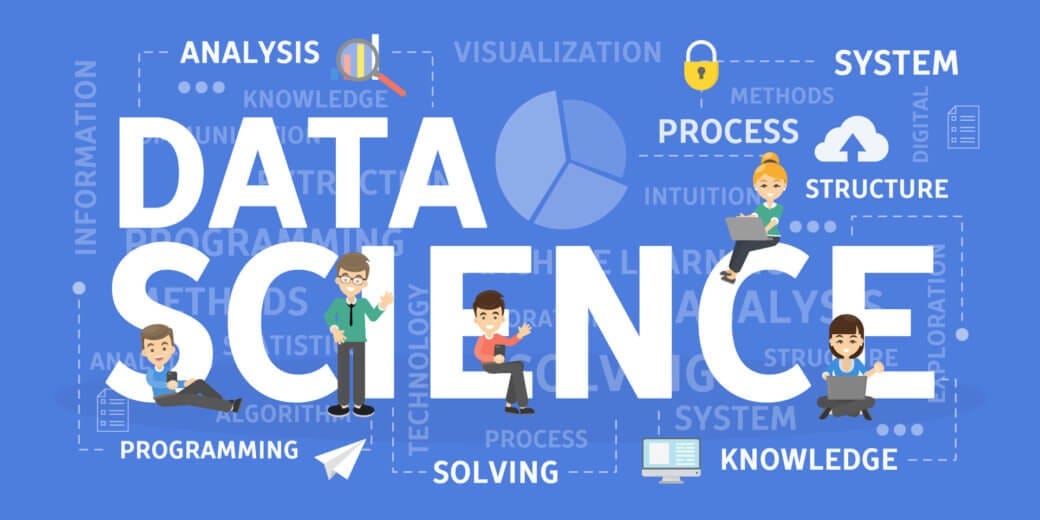What is Data Science? Data Science Dissertation Topics Explained
A Data Science Dissertation is an in-depth research project where students delve into the expansive field of data science. This discipline revolves around analyzing large datasets, developing advanced models, and uncovering patterns to address real-world problems or aid decision-making processes.
When crafting a data science dissertation, students often explore cutting-edge topics like machine learning, big data analytics, artificial intelligence, or predictive modeling. The primary objective is to contribute innovative insights, methodologies, or tools that advance the field of data science.
Whether you’re passionate about optimizing algorithms, tackling complex datasets, or creating predictive systems, a well-chosen dissertation topic can help shape your future in data science.
Why are Data Science Dissertation Topics Important?
Data science is one of the most in-demand fields today. Companies rely on data to make informed decisions, predict trends, and understand their customers better. By choosing a data science topic, you can explore real-world problems and provide solutions that can be applied in various industries like healthcare, finance, or technology. Your dissertation could help advance the field, making your research valuable and relevant.
Writing Tips for Data Science Dissertation
- Select a Relevant Topic: Pick a topic that is current and has a practical application. This will make your research more meaningful and impactful.
- Use Quality Data: Ensure you have access to high-quality and reliable data. Good data is crucial for accurate analysis and valid conclusions.
- Explain Your Methods Clearly: Data science can be complex, so clearly explain your methods and why you chose them. This helps others understand and replicate your work.
- Visualize Your Results: Use charts, graphs, and other visual tools to present your findings. This makes your dissertation easier to understand and more engaging.
Dissertation Topics Brief Service
Struggling to refine your dissertation idea? Let us create a tailored 500-word dissertation topic brief, including research objectives, significance, and methodology suggestions.
Get Your Custom Topic Brief Here:
Paid Topic Consultation Service
You will get the topics first as per the given requirements, and then the brief which includes;
- An explanation why we choose this topic.
- 2-3 research questions.
- Key literature resources identification.
- Suitable methodology with identification of raw sample size, and data collection method
- View a sample of topic consultation service
Download Sample Dissertations
Browse pre-written dissertation samples and topic briefs to understand structure, style, and content. These samples can inspire your research and help you draft a compelling proposal.
Download Your Free Sample Now:
List of Data Science Dissertation Topics
Discover the best Data Science dissertation topics, covering machine learning, big data analytics, AI, predictive modeling, data mining, and more. Find innovative research ideas to advance your data-driven insights and career.
Machine Learning and Artificial Intelligence
- Enhancing Fraud Detection Systems using Deep Learning Algorithms
- Personalized Recommendation Systems: A Comparative Analysis of Machine Learning Approaches
- Predictive Modeling for Disease Diagnosis and Treatment
Big Data Analytics
- Optimizing Supply Chain Management through Big Data Analytics
- Sentiment Analysis on Social Media Data: Understanding Customer Perception
- Big Data-driven Strategies for Urban Planning and Development
Natural Language Processing (NLP)
- Automated Text Summarization Techniques: A Comparative Study
- Language Translation Models: Challenges and Opportunities
- Sentiment Analysis in Political Discourse: Uncovering Public Opinion
Data Mining and Knowledge Discovery
- Association Rule Mining for Market Basket Analysis
- Clustering Techniques for Customer Segmentation in E-commerce
- Predictive Analytics in Stock Market Forecasting
Health Informatics
- Predictive Modeling for Early Disease Detection
- Wearable Devices and Remote Patient Monitoring: A Data-driven Approach
- Data Privacy and Security in Healthcare Data Sharing Platforms
Business Intelligence and Analytics
- Data-driven Decision Making in Marketing Campaigns
- Customer Lifetime Value Prediction: A Machine Learning Approach
- Performance Analytics for Business Process Optimization
IoT and Sensor Data Analytics
- Smart Cities: Leveraging IoT Data for Urban Sustainability
- Predictive Maintenance in Industrial IoT: Anomaly Detection Techniques
- Environmental Monitoring using Sensor Networks: Challenges and Opportunities
Image and Video Analysis
- Object Detection and Recognition in Surveillance Videos
- Medical Image Analysis: Applications in Diagnosis and Treatment
- Deep Learning Approaches for Facial Recognition Systems
Social Network Analysis
- Influence Detection in Social Networks: A Graph-based Approach.
- Community Detection and Analysis in Online Social Platforms
- Fake News Detection using Social Network Analysis Techniques
Time Series Analysis
- Forecasting Demand in Retail: Time Series Models for Sales Prediction
- Financial Market Volatility Prediction using Time Series Analysis
- Energy Consumption Forecasting: A Comparative Study of Forecasting Models
Spatial Data Analysis
- Geographic Information Systems (GIS) for Urban Planning
- Spatial-Temporal Analysis of Crime Patterns: A Case Study
- Environmental Impact Assessment using Spatial Data Analysis Techniques
Bioinformatics
- Genomic Data Analysis: Towards Precision Medicine
- Protein Structure Prediction using Machine Learning Algorithms
- Computational Drug Discovery: Opportunities and Challenges
Data Privacy and Ethics
- Privacy-preserving Data Mining Techniques: Balancing Utility and Privacy
- Ethical Considerations in AI-driven Decision-Making Systems
- GDPR Compliance in Data-driven Businesses: Challenges and Solutions
Deep Learning Applications
- Deep Reinforcement Learning for Autonomous Vehicles
- Generative Adversarial Networks (GANs) for Synthetic Data Generation
- Deep Learning Models for Natural Language Understanding
Blockchain and Data Science
- Blockchain-enabled Data Sharing Platforms: Opportunities and Challenges
- Decentralized Data Marketplaces: A Paradigm Shift in Data Economy
- Security and Privacy in Blockchain-based Data Analytics
Related:
- Computer Science Research Topics (Approved Titles)
- Which topics are best for thesis in Computer Science?
- Information Systems Dissertation Topics Ideas
Conclusion
Writing a data science dissertation is an exciting opportunity to dive deep into a topic that interests you. Whether you’re exploring machine learning algorithms, data mining techniques, or the ethical implications of data usage, your research can make a significant impact. Choose a topic that aligns with your interests and has real-world relevance and remember to explain your methods and results clearly.
FAQs
1. What are some common data science dissertation topics?
Common topics include machine learning applications, big data analytics, data visualization techniques, and the impact of AI on data processing.
2. How do I choose a data science dissertation topic?
Choose a topic that you find interesting, has enough data available, and is relevant to current trends in the field of data science.
3. What tools do I need for a data science dissertation?
You may need tools like Python, R, SQL, and data visualization software like Tableau or Power BI.
4. How long should my data science dissertation be?
The length varies, but most data science dissertations are around 80 to 120 pages. Check your institution’s guidelines for specific requirements.
List of Related Posts
- Top 99 Artificial Intelligence Dissertation Topics (AI) for 2025
- 99+ Top Data Science Dissertation Topics for 2025
- 99+ Information Systems Dissertation Topics in 2025
- 99+Best Computer Science Dissertation Topics Ideas for 2025
- 99+Best Networking Dissertation Topics Ideas for 2025
- 99+Best IT Dissertation Topics and Ideas for 2025
- 99+Best Internet Dissertation Topics Ideas For 2025
- Computer Science Research Topics (Approved Titles)






